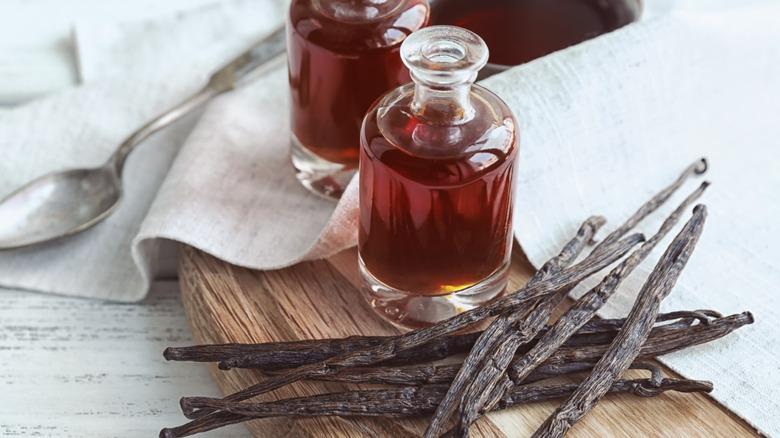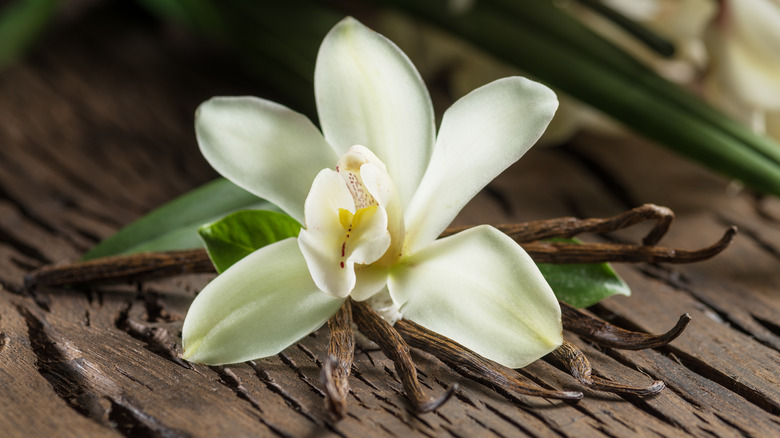How Much Alcohol Is In Vanilla Extract?
The rich aromas of vanilla are unmistakable. Its warm scent fills the kitchen when baking cakes, cookies, and confections, making it the quintessential pantry ingredient. According to NPR, skyrocketing demand, in addition to natural disasters and a fickle, time-consuming production process, have caused the humble bean pod to be valued at up to $600 per kilogram. While the sticker-shock-inducing prices on bottles of vanilla extract seem concerning, there's another number you should be paying closer attention to — the alcohol content.
Originating from Mexico, America's Test Kitchen explains that most of our vanilla comes from Madagascar, where the bean pods of vanilla planifolia orchids are hand-pollinated, harvested, and cured to concentrate flavors before being used to make extract.
With a simple signature scent, Masterclass notes that vanilla extract is a coffee-colored tincture that's crafted by macerating vanilla pods in ethanol (and sometimes a bit of water). But how much alcohol is actually in those tiny bottles of extract?
Pure vanilla extract has 35% alcohol!
You don't need identification to buy a bottle of vanilla, which is a bit of a shock. According to the FDA, vanilla extract is legally defined as having no less than 35% ABV.
Despite the fact that vanilla extract has the same proof as rum, adding a splash to baked goods won't affect you like a shot of liquor would. Likewise, since vanilla extract is sold in small quantities, the risk of intoxication is low, but not impossible, claims USA Today.
The reason why we can buy it at supermarkets rather than at liquor stores dates back to the years of Prohibition. In order to save industries from dying, Bon Appétit explains that manufacturers pleaded with politicians to create legal loopholes that would allow them to continue business as usual, since vanilla extract wasn't intended as a beverage but rather required alcohol for extraction and stabilization. Once Prohibition ended, vanilla extract continued to be sold as a food product to avoid liquor taxes and reap government rebates since the final product doesn't become an alcoholic beverage.
While non-alcoholic versions exist today, along with synthetic renditions, pure vanilla extract remains a pantry staple thanks to its bolder fragrance and more complex flavors.

